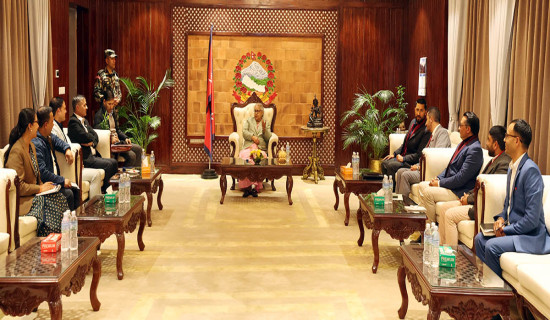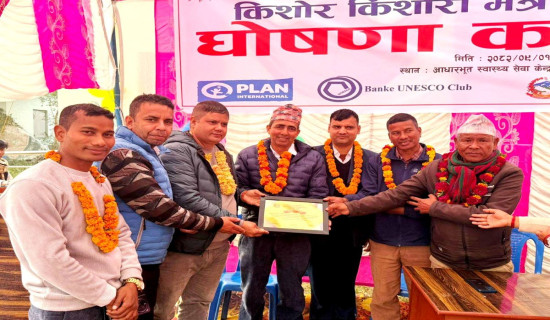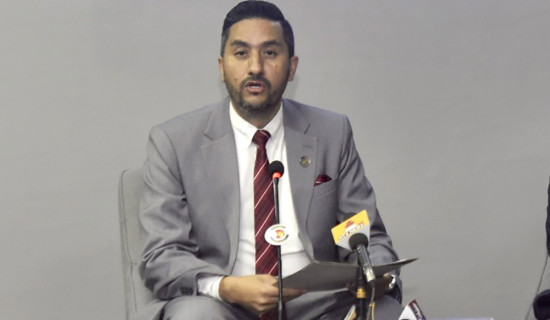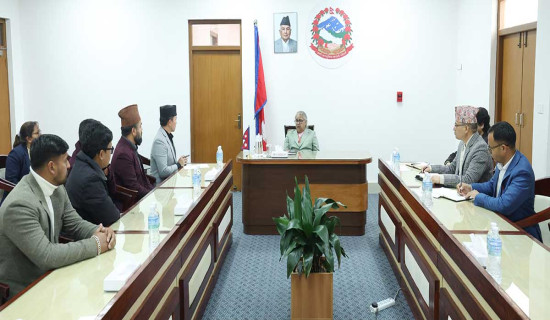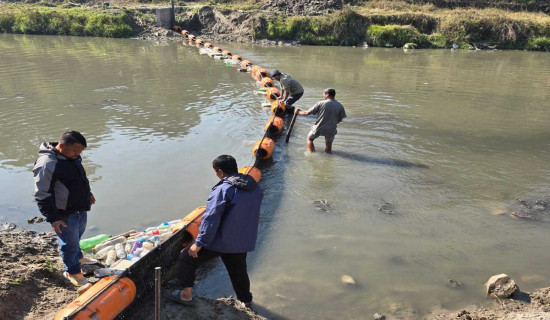- Monday, 22 December 2025
Optimising Public Resource Efficiency
Although overall macroeconomic indicators are claimed to be on track, revenue shortfalls and funds insufficiency to foot the ex-employees’ pension bill shows that all are not well in the domain of national economy. At a programme organised the other day, noted economists hinted at impending crisis in economy and suggested that the government should implement the cost cutting measures, among others, to address the problems impairing the national economy. To this end, the government should take daring steps and even go to the extent of pruning the size of the state structures from federal to the local level. In fact, the federal governance arrangement in Nepal has been structured by inter-tier assignment of the functions with national, provincial and local levels exercising their constitutionally assigned mandates and competencies.
Several apparatuses and agencies controlled and managed so far by the central (federal) government have to be either disbanded if they are irrelevant, repurposed or transferred to the purview of the sub-national governments -- provincial and local -- for their resource efficiency, effective operation and management. According to the report of the unbundling of the functions of the federal, provincial and local levels carried out by the Office of the Prime Minister and Council of Ministers (OPMCM), the principle of subsidiarity has been and adhered to with regard to devolving some of the central level functions and responsibilities to the provincial and local governments through transfer of mandates, competencies assets and personnel. This has been done especially with a view to attaining cost and resource efficiency and enhances effectiveness in the process of governance and service delivery.
Ad hoc bodies
However, these federal constitutional expectations and arrangements premised upon the principle of subsidiarity have not been adequately addressed as evidenced by the huge bureaucratic apparatus yet far retained at the central level incurring huge expenses and indiscriminate creation of the ad hoc bodies and agencies at different levels thereby putting pressure on public expenditures. The government is predisposed to the creation of new agencies, new programmes, and new spending initiatives, instead of reorganising, or repurposing what is already available within the existing set up or institutional arrangements.
As a result, there are several programmes, projects and activities operated and handled by the governments that have allegedly outlived their mission and objectives, duplicate efforts and resources, or operate below peak efficiencies. This wasteful spending has been a contributing factor to the deteriorating fiscal health and discipline as reflected in the annual reports of the Office of the Auditor General (OAG) and Public Expenditure Review Committees (PERCs) constituted by the previous government, among others.
Hence, there is a need to reflect on and review the patterns of the public expenditure in the country. In this context, it would be in order to outline some of the widely applicable standards on which broad action to reduce tax payer money should be based and executed. In order to stop wasteful and unnecessary spending, all government programmes should have a direct, clear, and immediate purpose. Likewise, all government spending should provide a necessary and essential public service, and serve a clearly defined need, demands and interest of the people. In the contemporary democratic dispensation, taxpayers expect and deserve a government that is not spending taxpayer money to support the projects and programmes that are unrelated, irrelevant and wasteful.
All public spending should fund their intended purpose and reach the targeted recipient. In fact, there should not be any improper payments that result in monetary loss to the public exchequer. The government should be frugal and strive to avoid overpaying to finance materials, projects and activities. The government should spend only the amount necessary to achieve intended objectives and goals, and all expenditures should be assessed on that basis. Using the above-mentioned guidelines, public spending should be geared to restrain and refocus taxpayer resources. The government should eliminate all the duplicating and overlapping projects and programmes. The programmes and projects that do not yield intended results and outcomes should be either avoided or repurposed and eliminated.
All illegal, improper and irrational payments need to be revoked for proper utilisation of the public resources. Moreover, an effective oversight of public spending should be conducted to minimise and eliminate wasteful expenditures. The most important measure for eliminating wasteful expenditure is to stop hasty and unwise end of financial year spending. The Public Expenditure Review Committee headed by nationally known economist Dr. Dilli Raj Khanal in its report had made recommendations not very long back to reduce overlap, duplication, and fragmentation in the programmes. The PERC report identifies opportunities for cost savings, and a better effective and efficient service delivery for the people, through addressing several types of common inefficiencies in government.
Service delivery
When more than one government agency, or more than one component within an agency, is involved in the same broad area of national need and there are opportunities for reform towards improving service delivery. When multiple agencies or programmes have similar goals, engage in similar activities or strategies, or target similar beneficiaries, the overlapping agencies can be downsised or eliminated. The government should address many of these inefficiencies by reforming, reducing the funding for, and in some cases, eliminating these programmes.
Very appropriately, PERC report proposes to reorganise, consolidate and even eliminate overlapping projects and programmes with a view to cut leakage and wasteful expenditure. These measures would allow the public programmes, projects and activities to meet and address the expectations of the people and save resources to support the needy people. The new government should implement critical steps towards cutting wasteful expenditures, disuse of resources and materials at the federal, provincial and local level to ensure resource efficiency and maximise effectiveness of service delivery across all levels.
(The author is presently associated with Policy Research Institute (PRI) as a senior research fellow. rijalmukti@gmail.com)










